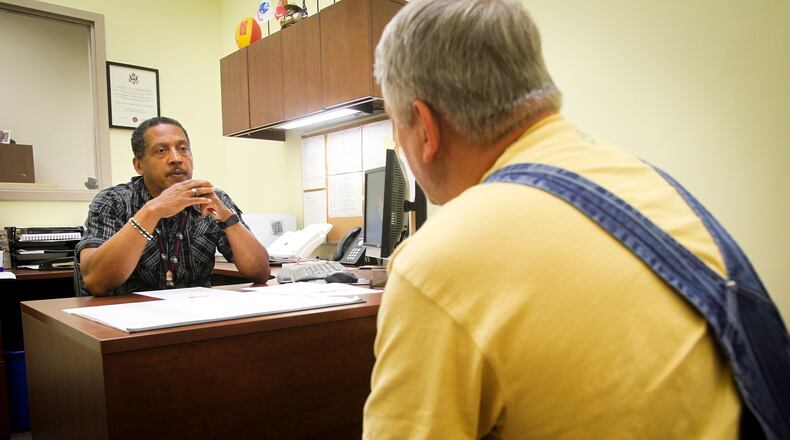RELATED: Veterans board passes 2017 budget
The veterans board has made a concerted effort over the past few years to reach more of the estimated 26,000 veterans in the county who might need their help. Last month they hit their second highest number of veterans served over five years at 492, second only to November of last year when they helped 496 veterans.
The commission is funded by a percentage of the general fund millage the legislature carved out to help veterans.
Butler County’s millage brings in about $3.4 million annually but historically the board has budgeted $2 million or less, doling out emergency cash, helping veterans navigate the Veterans Administration system, arranging and paying for transportation to medical appointments and finding local services for everything from legal issues to marriage counseling. The remainder of that money reverts to the county’s general fund
The second largest expenditure for next year is $564,554 for employees’ salaries, a five percent increase. Executive Director Caroline Bier noted in her narrative this line item could definitely change.
“The agency is currently planning on participating in the county-wide wage study during 2017,” she wrote. “If across-the-board pay increases are approved upon the results of the wage study in 2017, then across-the-board pay increases in 2018 may not be necessary.”
Commission President Chuck Weber questioned whether five percent is enough.
“I just want to make sure we have enough in the budget to give raises to those who are worthy,” he said. “I think if we have good performance we should recognize the performers.”
County Finance Director Tawana Keels sent out a letter to all the elected officials and department heads in April instructing that for now, they should not include incentive pay in their tax budgets. The county has a $3 million hole in its budget due to the loss Medicaid Managed Care Sales Tax.
When asked about Keels’ request Weber said he still supports the five percent because he wants to make sure they budget enough money to pay their people according to what the new wage study might recommend.
“Just the idea we won’t be behind the eight ball when the wage study is completed and then we’re at a number that doesn’t satisfy what the deserved amounts are,” he said.
RELATED: County facing $3 million budget hole
Since the veterans board has its own segment of the county’s general fund the county commissioners can’t really dictate how that board spends the money allotted to them. Bier said although she penciled in five percent that doesn’t mean that will be the final figure.
“Our board approves our budgets and the tax budget is what sets the millage. Theoretically what they are supposed to do is we ask for this and that should be what we get out of that 3.4 mill,” she said. “That tax budget is what we want ideally but in September when we submit our real budget we’ll par it down from there.”
The commissioners started capping their own salaries in 2015. The newest board member Dave Reed in perusing the tax budget asked why there is a disparity among the commissioners’ salaries.
“I didn’t know about the dollar amount until after the fact, which that was the bonus part,” he said and then indicated the work they were doing on Wednesday is what matters. “This is the meat and potatoes. I just happened to see, well why is everybody on one level and you’re (Weber) lower.”
RELATED: Veterans board caps commissioners’ salaries
The five-member vet board gets a new or reappointed member every year, and that person was automatically getting a two percent raise over the last new appointee’s salary. The commissioners can’t vote themselves raises, that’s why the raise was coming on when a new member joined the board.
The commissioners thought it was unfair the salaries were unequal so they agreed to cap the new salary at $8,868 and eventually all five members will be making that amount. on to set the next incoming vet board member’s salary at $8,868, the salary that will remain until all five members are making the same amount.
About the Author
